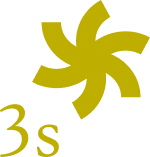New VET model for Greece

image by Gert_Altmann_pixabay
Greece has had a VET system since the 1950s but it lacks essential features of dual vocational training. All theoretical and practical vocational training takes place in vocational schools set up for this purpose and is heavily theory-based. Vocational training is currently not yet seen as an alternative to attending a school leading to a higher education entrance qualification.
This project supports the Ministry of Education and Religious Affairs in Greece in designing, implementing and testing the new model of “Epaggelmatiko Lykeio” (EPAL) schools (upper secondary vocational schools). In the spirit of other European Centres of Vocational Excellence (CoVEs), these model EPAL schools aim to establish a strategic and systematic dialogue with social partners and to improve the quality of education (e.g. through pilot curricula and modern teaching methods). Support services in the project include research on the current situation of EPAL schools, analysis of good European approaches (especially on the involvement of social partner organisations in VET), elaboration of recommendations and support to the first pilot year of EPAL model schools.
PPMI (LT) acts as coordinator, 3s (Karin Luomi-Messerer, Mariya Dzhengozova) is responsible for analysing good practice approaches to the design and implementation of Centres of Vocational Excellence (CoVEs) and similar initiatives.
Project: Development of social partnerships in vocational education and training (pilot model EPAL) – Greece
Contact: Karin Luomi-Messerer
Client: European Commission - Directorate-General for Structural Reform Support (DG REFORM)
Duration: 12/2020–2023


